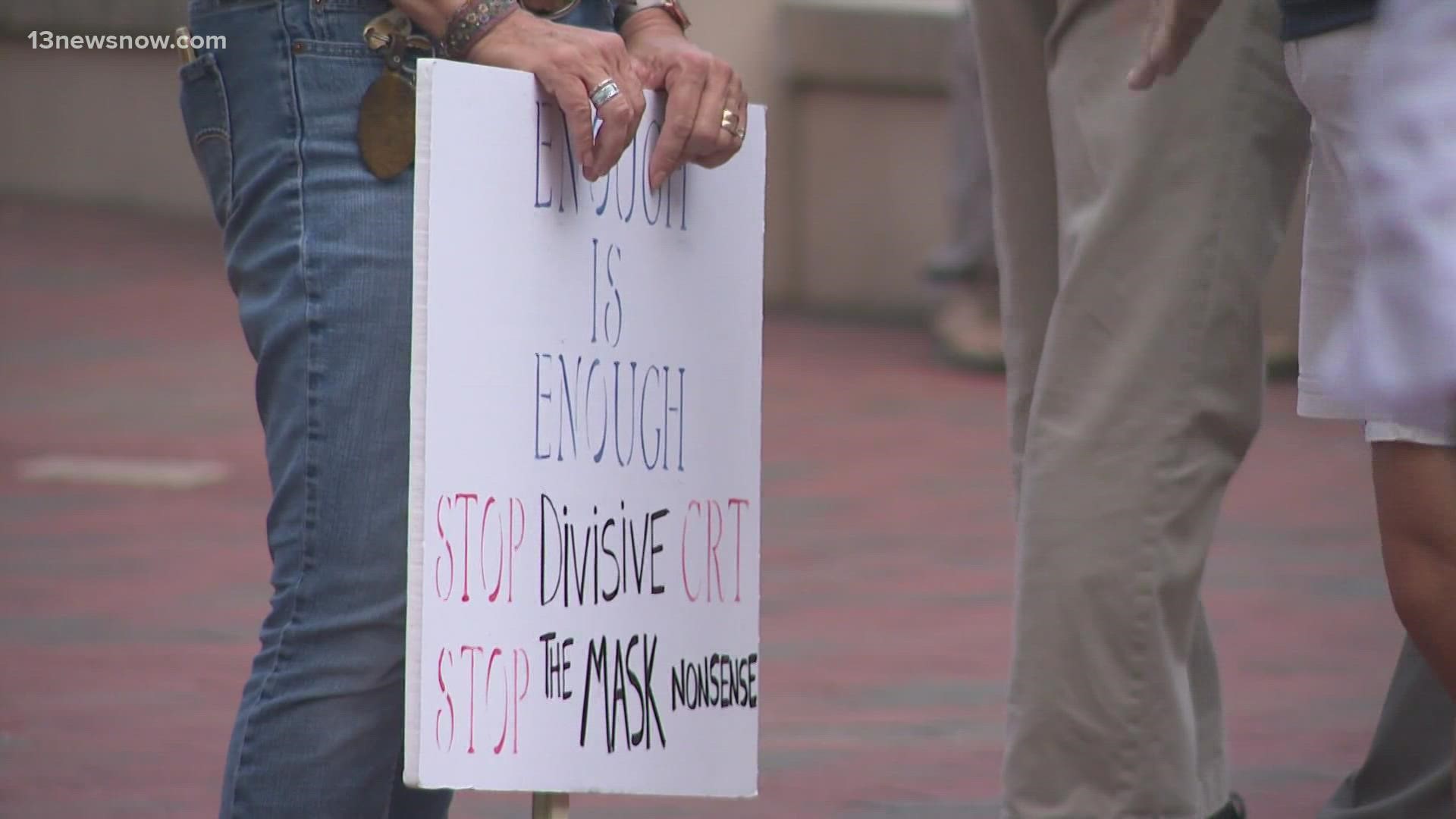NORFOLK, Va. — Virginia Governor Glenn Youngkin completed a campaign promise with his first Executive Order, seeking to ban the use of Critical Race Theory or related "inherently divisive concepts."
However, some educators and scholars say that's a misinterpretation of what Critical Race Theory is, pointing out CRT is not a part of Virginia's curriculum standards.
In August, 13News Now shared a 3-part series on Critical Race Theory, examining its roots, the political discourse around the topic, and the potential effect of proposed bans on public education.
Youngkin, in his order, said Critical Race Theory instructs "students to only view life through the lens of race and presumes that some students are consciously or unconsciously racist, sexist, or oppressive, and that other students are victims."
In a speech in front of the General Assembly on Monday, Youngkin said: "We should not be teaching our children to see everything through the lens of race," when referring to his EO.
The order calls for the Virginia Superintendent of Public Instruction to review policies, curriculum, guidelines, school materials, and best practices to identify and "end those that promote inherently divisive concepts.”
Youngkin recently named Jillian Balow, former Wyoming Superintendent of Public Instruction, to the role.
The order would give Balow 30 days to report any “divisive concepts” in policies, programs, or training and 90 days to recommend legislative or executive actions to end them.
However, educators that have studied CRT said that's missing the mark.
"In the recent conversation, it’s almost like we zero in on the race piece and distort it to mean racism when in actuality [CRT] is a tool for understanding why can we see so many inequalities across systems," said ODU Professor Dr. Shuntay Tarver in a previous interview with 13News Now.
Critical Race Theory, at its core, is an academic framework created in the 1970s to evaluate systems of racism in America and examine how they’ve evolved and perpetuated.
It's most often discussed in higher education, not in K-12 public education.
Tarver said a more accurate understanding and practice of CRT would be expanding educational access to different viewpoints, including highlighting minority authors or varied accounts.
“When we come up with a summer reading list, that we also include authors that represent our student body, that’s what Critical Race Theory would challenge them to do," she said. "It wouldn’t challenge them to teach 6 or 7-year-olds that they should hate each other across racial lines, so that’s disheartening and scary.”
Youngkin's executive order also calls for the review of Virginia's recently established cultural competency training for state employees, based on a new state law, which prior VDOE officials said was created to promote inclusive curriculum and validate diversity in classroom environments.
The order refers to a 2019 memo from former VDOE Superintendent Dr. James Lane, which listed "resources to support student and community dialogues on racism."
The memo offers suggestions of nearly 20 books and articles intended to help create a school climate that is: "welcoming, socially supportive, just, caring, nurturing, and respectful for all students, families, and school personnel."
One of the books listed is titled "Foundations of Critical Race Theory in Education," an analysis of the concept's progression over decades.
After the memo received additional attention in 2021, VDOE added a supplemental note to the reading list:
"This memo was issued in February 2019 as a compendium of resources and different perspectives for school division leaders who were navigating community conversations related to race. It is not a resource or directive for classroom teachers, nor does it reflect recommended or required student reading.
The resources listed and authors referenced represent a variety of viewpoints, and their inclusion does not necessarily represent a Department endorsement of expressed views and opinions.
Finally, because the Department has received many related inquiries, Critical Race Theory (CRT) is not included in the Virginia Standards of Learning, which comprise the content in each subject area that the commonwealth's school divisions are required to cover in their local curricula. Nowhere in the standards is there a requirement for schools to teach critical race theory, or to incorporate critical race theory when presenting required content."
Youngkin's order dictates that "inherently divisive concepts" means "any ideas in violation of Title IV and Title VI of the Civil Rights Act of 1964."
Tarver said the discussion and political debate over CRT has distracted from what should be a common goal.
"If you decontextualize it and focus on the distorted notion that it teaches racism and hate, we will never have a common language in which we can train and educate our children to work together," she said.

